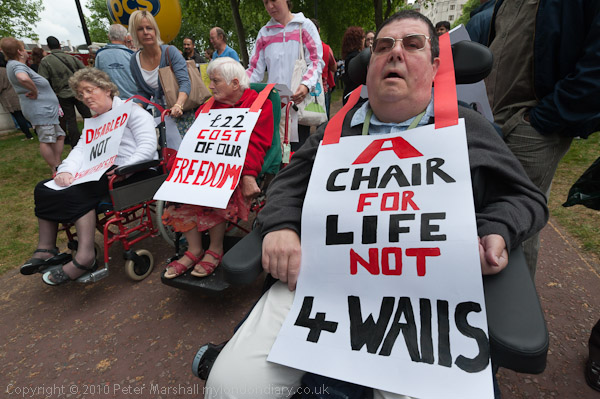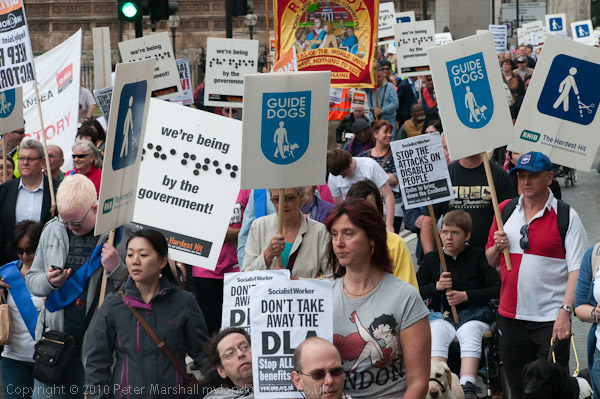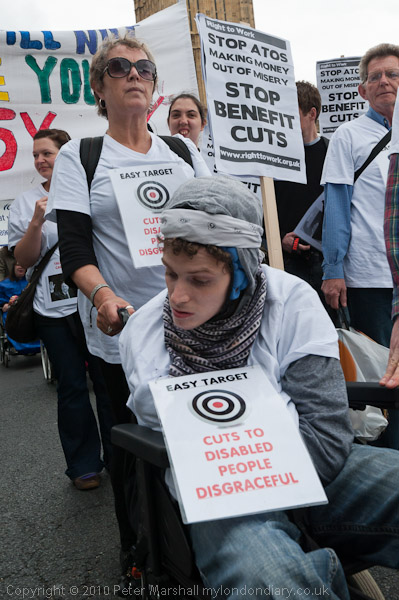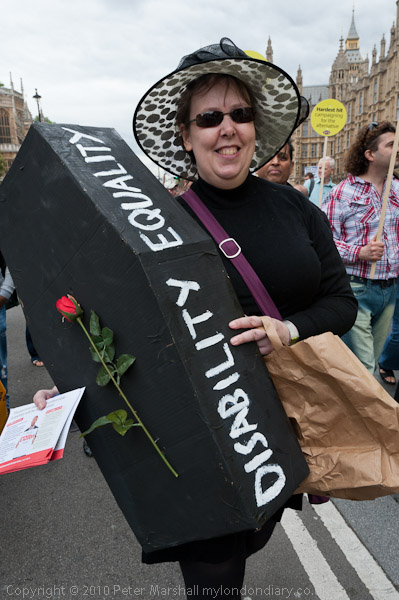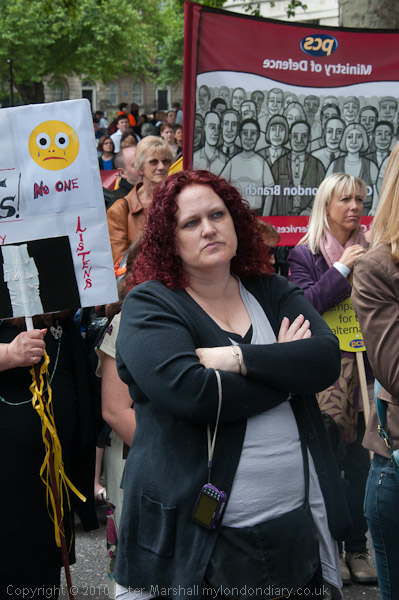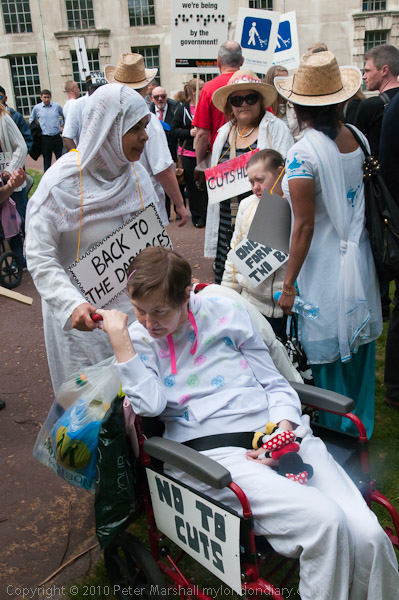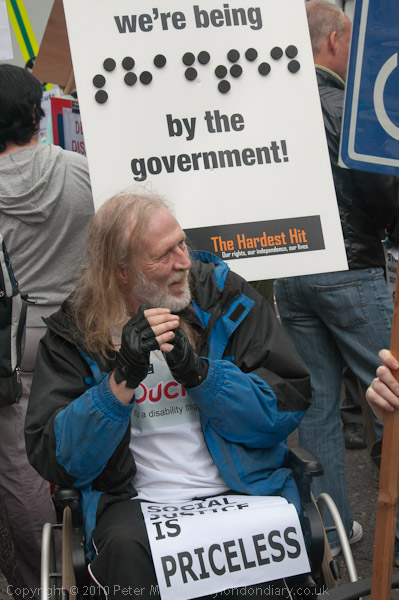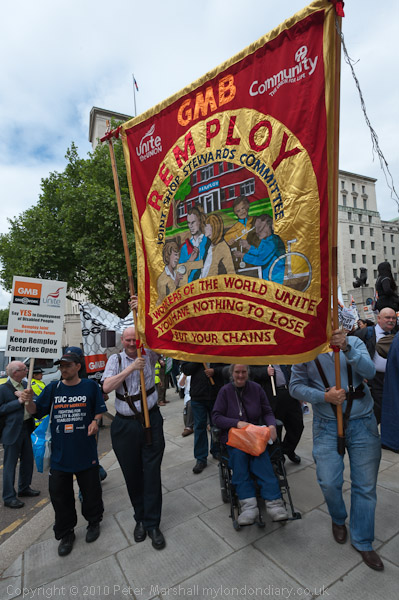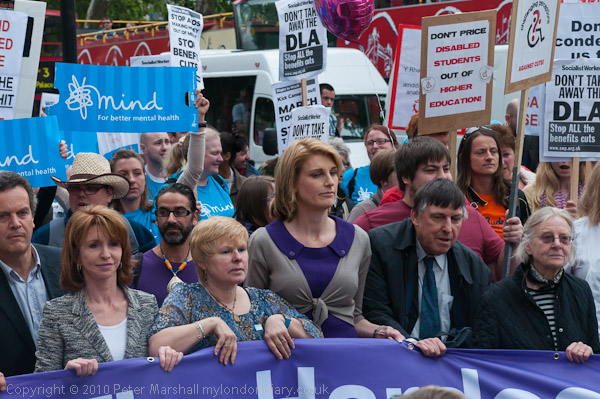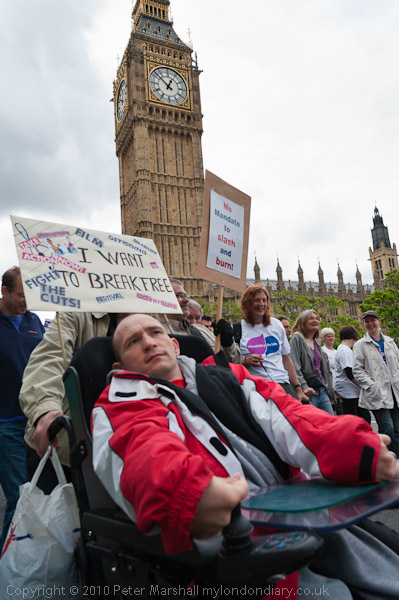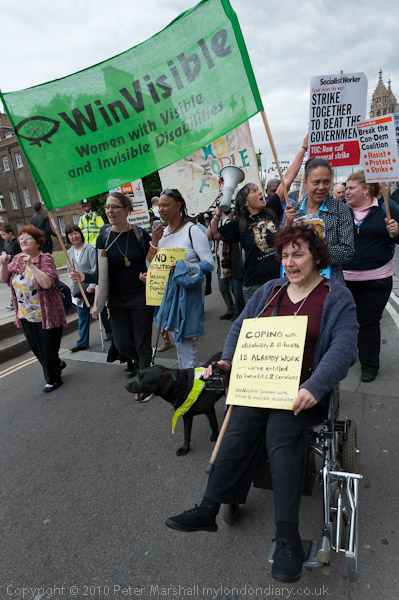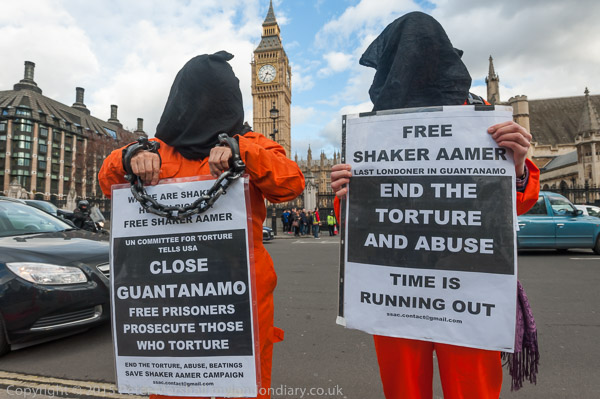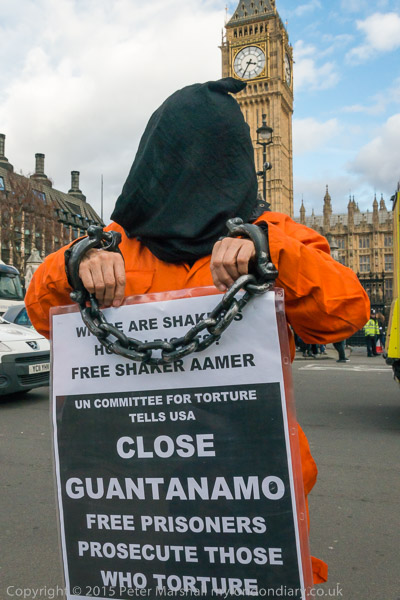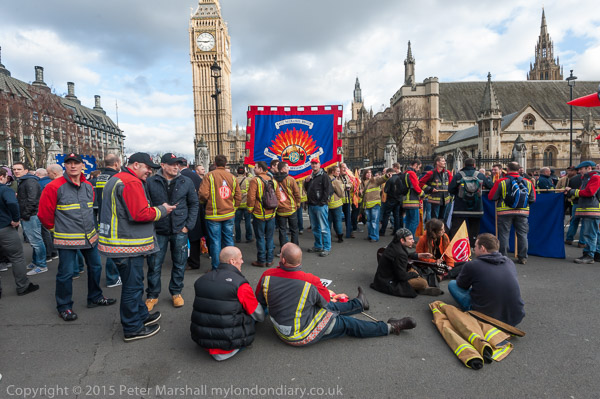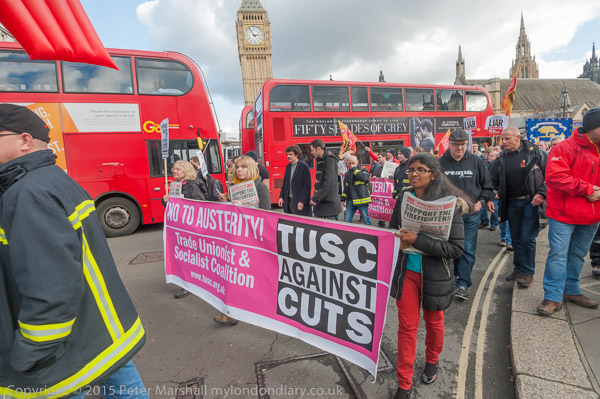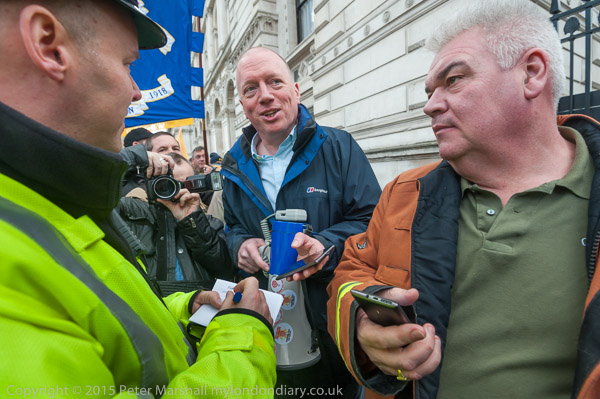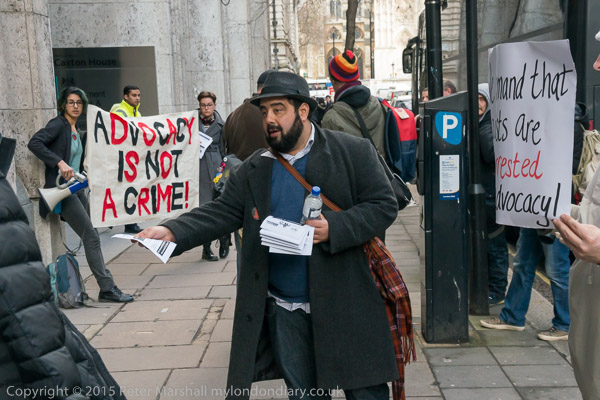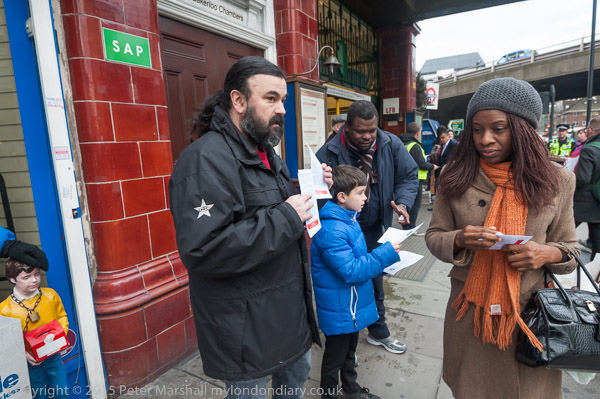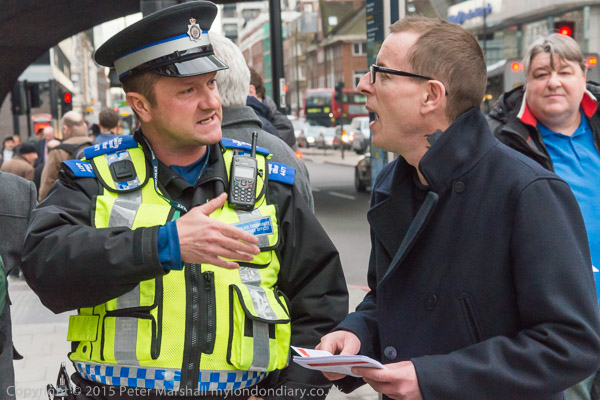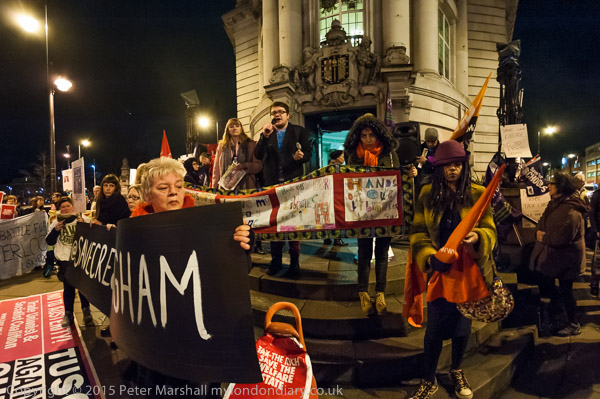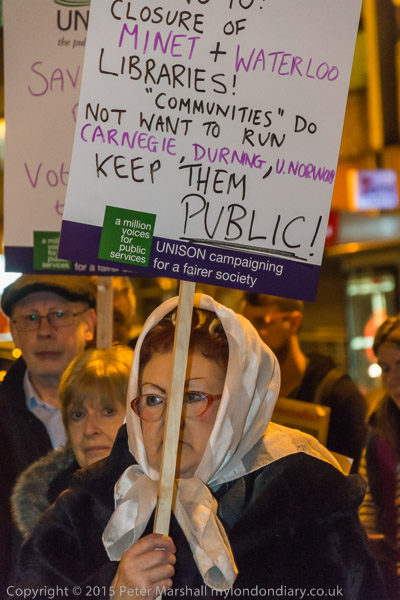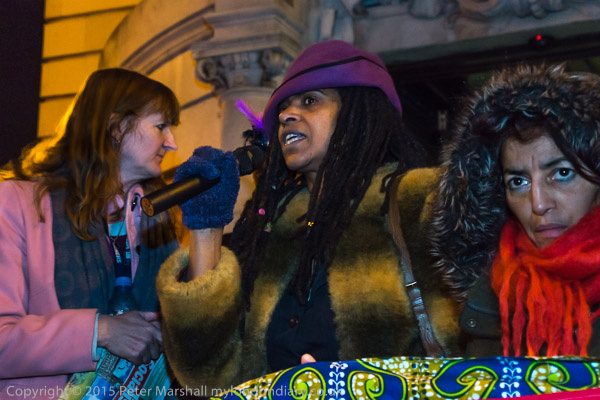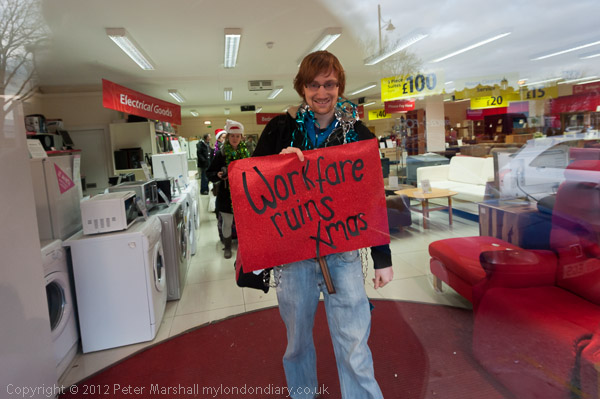
Campaigners held a brief ‘Boycott Workfare Surprise Party’ in the British Heart Foundation shop in the centre of Brixton in a protest against the charity using free forced labour by unemployed people in their shops.

Previous governments had introduced various schemes to provide work for the unemployed, particularly for young people which involved training, usually while performing socially useful tasks, such as the Youth Training Scheme. But Workfare, introduced by the coalition government in 2012 meant that those who had been out of work for some years had to work for six months without pay, often at profit-making companies, in order to keep getting their benefits.
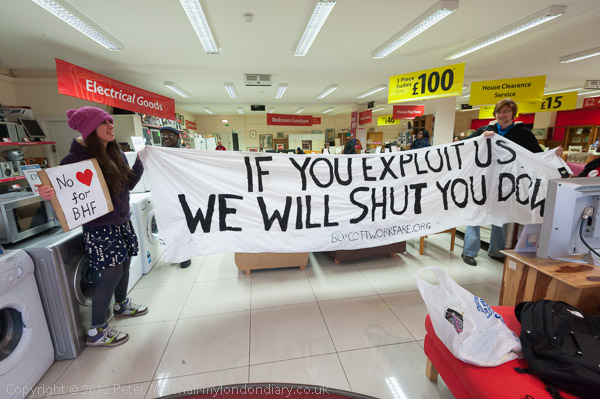
There were a number of different workfare schemes brought in under the coalition and Tory governments including ‘Community Work Placements‘, introduced in April 2014 which forced “claimants to work for up to 30 hours a week for 26 weeks in return for Jobseeker’s Allowance (JSA)” but was scrapped in 2015.

The protesters came from the anti-workfare group Boycott Workfare and met in Windrush Square in Brixton, where two PCSO’s tried with little success to find out what they intended to do.
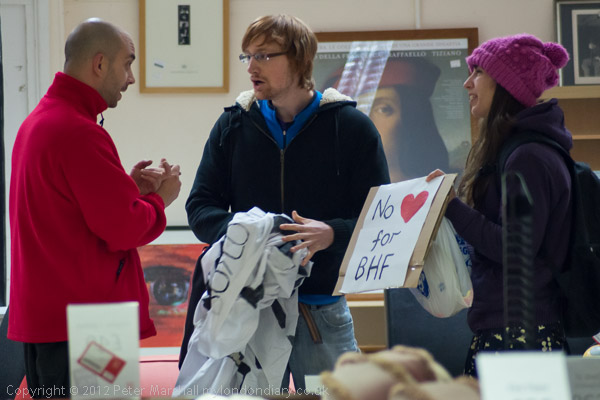
The small group then walked off down Brixton Road and went into the “British Heart Foundation shop armed with Christmas decorations, Santa hats and crackers as well as a banner and placard. Shop staff argued with them as soon as they started to party and protest.” I went in with them but was soon was told I could not photograph inside the store; I didn’t argue but left and continued to take pictures through the many glass windows to the shop.
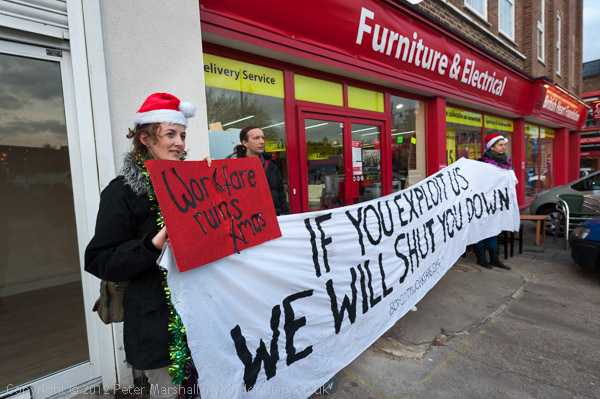
After around 15 minutes the group left the BHF shop and posed for photographs outside before packing up and moving to protest outside Poundland, which also uses free workfare labour, abusing the unemployed. They handed out leaflets to those entering and leaving the shop and to passersby by.

The next stop was Superdrug, where a security guard came out and told the protesters they were not allowed to protest on the street outside. They laughed at him and told him he was mistaken – they had every right to protest on the highway.

He saw I was taking pictures and threatened to smash my camera. I moved back behind some of the protesters and told him he would be breaking the law if he touched me and continued taking photographs.
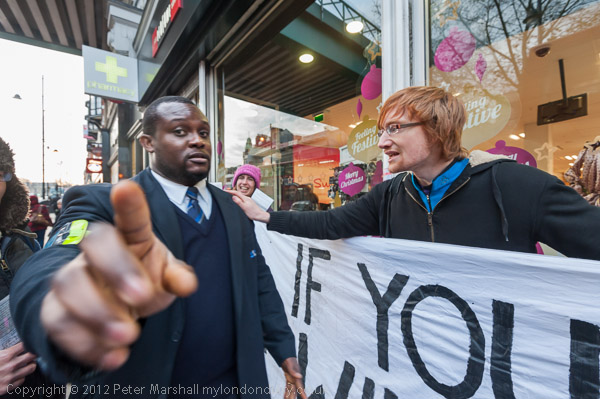
The protest continued, and the protesters explained why they were protesting. The security man wasn’t aware that Superdrug were using free labour of unemployed people who had no choice but to work for nothing or lose their benefits.

He calmed down and after a few minutes went back inside Superdrug. The protest continued, handing out leaflets to those walking past on the busy high street. When they began discussing which shop to go to for their next protest I decided I’d done enough and left for home.

As I commented, “Workfare is supposed to offer a way for the unemployed to get into work, but many employers are using it as a free labour supply, cutting down the number of actual jobs available by getting the work done for nothing by the unemployed… Some employers also seem to be using workfare to attack workers’ terms and conditions and attacking trade union organisation by replacing unionised workers by the unemployed.”
More pictures at Boycott Workfare Surprise Party in Brixton.
Flickr – Facebook – My London Diary – Hull Photos – Lea Valley – Paris
London’s Industrial Heritage – London Photos
All photographs on this page are copyright © Peter Marshall.
Contact me to buy prints or licence to reproduce.
